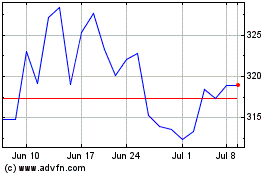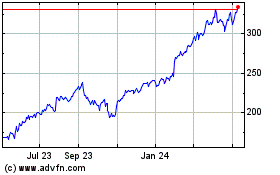GDP vs. Corporate Profits: Is there a true disconnect? - Tactical Trading
July 31 2011 - 8:00PM
Zacks
Friday's dismal GDP data -- particularly the downward revisions to
prior quarters -- has even the most bullish of market strategists
(myself included) starting to wonder about the increased
probability of a double-dip into recession territory.
Normally, to check my biases, I try to ask myself
tough questions that assume I could be wrong about the continued
strength of the recovery. Last month, I laid out very simple and
clear arguments for said continuation in "The Seven C's of Recovery
Optimism."
Then, just when I needed it most, a very pointed
question came across my radar this morning that is a good
counterpoint to my optimism and that must be addressed. Writing on
SeekingAlpha Sunday, G.C. Mays proposed that "The Relationship
Between Corporate Profits and U.S. GDP Growth Appears to Have
Ended."
The Global Economy's Changing Dynamics
Mays draws on the last ten years of data to paint
the picture of a divergence he calls "astonishing." Here is his
summary of that picture:
"Between the first Quarter of 2001 and 2006, a
simple correlation showed that corporate profits explained 98.4
percent of domestic GDP growth. However, the most recent five years
beginning with the first quarter of 2006 the correlation between
corporate profits and domestic GDP growth breaks down as corporate
profits only explain 10.1 percent of domestic GDP growth."
Mays seems to understand well the not-so-mysterious
force behind this evolving disconnect. He explains that with over
45% of S&P 500 company sales coming from outside the US, lots
of corporate profits are not entering into the GDP calculation.
"This is due primarily to the growing middle class
in emerging and developing markets," he says. Exactly what I have
been preaching as blessing for the past two years.
One Man's Bearish Data Is Another
Man's...
So while I was at first alarmed by his thesis --
and thinking there was some terrible structural problem with our
economy, similar to the credit bubble of the last decade -- I was
relieved to find that what Mays finds to be a problem, I welcome as
an unstoppable reality of the global economy that, while not
perfect, is fueling growth and opportunity for billions of
people.
What's wrong with Emerging Markets fueling growth?
According to Mays it's that American companies are essentially
creating jobs and demand in these economies via a cheaper labor
source. And he believes this is ultimately bad for the US economy
and its work force.
I'm not smart enough to know whether or not he's
right about that. I just accept the reality that if manufacturers
like Caterpillar (CAT), Eaton (ETN), Deere
(DE), and Cummins (CMI) can find opportunity in countries
that want to grow their cities and economies -- and that have
billions of people clamoring for the fruits and lifestyles of the
developed world -- then who am I to say it's not right?
Progress is certainly still profitable and if we
can make money following a historic mega-trend that benefits
billions of people searching for a better life, I'm all about that.
The opportunities will only grow for the rest of this decade as the
world's population surges to 9 billion by 2050.
For more I've recently written on this topic and
these stocks, see these articles:
Front-Running the Elephants from July 27
Industrial Strength Power from July 25
Disclosure: I am short puts on Cummins (CMI).
Kevin Cook is a Senior Stock Strategist for
Zacks.com
CATERPILLAR INC (CAT): Free Stock Analysis Report
CUMMINS INC (CMI): Free Stock Analysis Report
DEERE & CO (DE): Free Stock Analysis Report
EATON CORP (ETN): Free Stock Analysis Report
Zacks Investment Research
Eaton (NYSE:ETN)
Historical Stock Chart
From Jun 2024 to Jul 2024

Eaton (NYSE:ETN)
Historical Stock Chart
From Jul 2023 to Jul 2024
